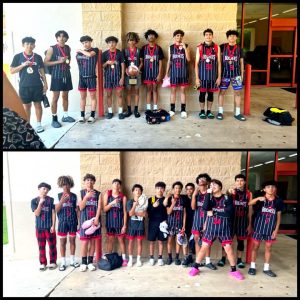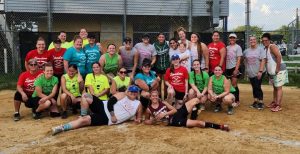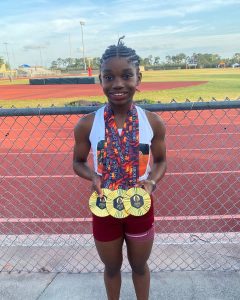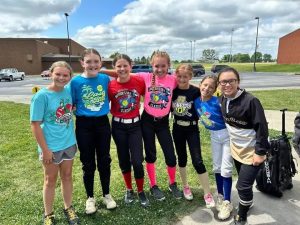
I’ll not play again said by Knoxville AAU basketball young player who has been abused by their coach…
“I’ll Not Play Again” – Knoxville AAU Basketball Player Quits After Alleged Coach Abuse Knoxville, TN – A young basketball player from Knoxville’s AAU (Amateur Athletic Union) circuit has made a heartbreaking decision to step away from the game, citing emotional and physical abuse by their coach. The revelation has sent shockwaves through the local basketball community, raising concerns about player safety, coaching ethics, and the broader issue of abuse in youth sports. A Young Talent Walks Away The player, whose identity is being withheld due to their age, had been considered a rising star in Knoxville’s youth basketball scene. They had been playing for one of the region’s most competitive AAU teams and were expected to have a bright future in the sport. However, in a statement that stunned teammates, parents, and supporters, the young athlete declared, “I’ll not play again.” According to sources close to the player, the decision came after repeated instances of mistreatment by their coach, who allegedly subjected them to verbal abuse, excessive punishments, and a toxic team environment. While AAU basketball is known for its intensity and high-level competition, reports suggest that this coach crossed ethical and professional boundaries, making the game unbearable for the young athlete. Allegations of Abuse Several teammates and parents have come forward to support the player’s claims, stating that the coach’s behavior had been a long-standing issue. Reports suggest that the coach would often single out certain players, berate them in front of their peers, and force them into grueling drills as a form of punishment rather than training. One parent, who asked to remain anonymous, described the situation as “pure mental torment.” “This coach would make them run sprints for missing a single shot. They would yell at them in ways that no child should ever have to experience. My heart broke every time I saw these kids crying after practice,” the parent said. Another parent added, “We were told that this is just how competitive basketball works, but it’s not. There’s a difference between tough coaching and abuse. What this coach did was absolutely wrong.” Breaking the Silence The young player’s decision to quit the sport is being seen as a bold stand against a system that often prioritizes winning over player well-being. Their statement, “I’ll not play again,” speaks volumes about the deep emotional toll the situation has taken on them. Mental health advocates have pointed out that cases like this highlight the need for stricter regulations on youth sports coaching and better mechanisms for players to report abuse without fear of retaliation. Dr. Angela Whitman, a sports psychologist who works with young athletes, commented on the impact of such coaching behavior: “When a child decides to give up a sport they love because of a toxic environment, it tells us that something is deeply wrong. Coaches hold incredible power over young athletes, and when that power is abused, it can have lasting psychological effects. Many players who experience emotional abuse in youth sports struggle with self-esteem, anxiety, and even depression long after they leave the game.” A Pattern of Misconduct? This incident has prompted further scrutiny of the coach in question, with former players speaking out about their own experiences. Some have shared that they, too, felt pressured, humiliated, or threatened during their time under the coach’s leadership. A former player, now in high school, recalled their experience: “I remember feeling so anxious before practice, knowing that no matter what I did, it wouldn’t be good enough. I’d get screamed at for every little mistake. I love basketball, but playing for that coach made me hate it.” Despite multiple complaints from players and parents over the years, it appears that little action was taken to address concerns about the coach’s behavior. This raises questions about accountability in youth sports programs and whether organizations like AAU are doing enough to protect young athletes from abusive coaching tactics. AAU and Community Response Following the allegations, the Knoxville AAU organization released a brief statement, saying they take all claims of abuse seriously and will be conducting an internal investigation. However, many parents and advocates feel that more needs to be done to prevent situations like this from occurring in the first place. A group of concerned parents has started a petition demanding stricter coaching guidelines, better oversight, and a clear reporting system for players who feel mistreated. The petition has already gained significant traction, with hundreds of signatures within the first 24 hours. “We can’t just brush this under the rug,” said one of the petition’s organizers. “Our kids deserve to play in an environment that builds them up, not tears them down.” The Broader Issue in Youth Sports This case is not an isolated incident. Across the country, youth sports programs have faced increasing scrutiny over coaching practices that prioritize winning over player well-being. From excessive physical training to emotional and psychological manipulation, many young athletes endure harsh conditions that can lead to burnout or a complete loss of passion for their sport. The problem is often exacerbated by a culture that glorifies tough coaching and demands unwavering discipline. While discipline is a crucial aspect of sports, experts say there is a clear line between motivating players and emotionally harming them. What’s Next? For the young player at the center of this controversy, the future remains uncertain. While they have expressed their decision to step away from basketball, supporters are hopeful that they will find their way back to the sport under healthier circumstances. “Right now, it’s about healing,” said a close family friend. “No child should ever feel like they have to give up something they love because of an abusive coach. We hope that, in time, they’ll find a way to play again—on their own terms.” Meanwhile, parents, advocates, and sports organizations must confront the harsh reality that abusive coaching is a pervasive issue that demands immediate action. As the investigation unfolds, the community will be watching closely to see whether the Knoxville AAU takes meaningful steps to protect young athletes and ensure that no other player has to say, “I’ll not play again.” This story is still developing, and updates will follow as more details emerge.





